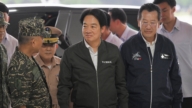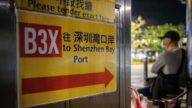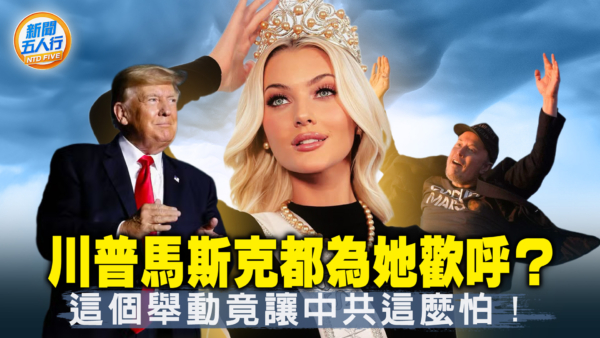【新唐人2012年9月12日讯】目前就钓鱼岛的主权问题,中日冲突不断升级。根据日本新闻网报导,9月11号上午,日本政府与钓鱼岛“土地权所有者”栗原家族正式签署了岛屿的“买卖合同”,购买金额为20.5亿日元。日本当天上午完成了购买钓鱼岛的交易,并宣布撤换日本驻中国大使。而在日本政府宣布购买钓鱼岛,并“国有化”的同时,中共喉舌《新华社》报导,中国海监船,已抵达钓鱼岛外围海域,这两艘海监船将“视情况开展维权行动,宣示主权”。
钓鱼岛主权争端,据了解,是在岛屿周围发现有丰富的石油和天然气之后。
时事评论家文昭:“钓鱼岛的价值,它与自然资源有关,同时它也有军事战略的价值,如果中日按照中间线原则,来彼此划分领海和经济水域,那本身日本的海权,就会向中国东海一侧延伸,那么对中国大陆来讲,他会是感到战略上的威胁,这是一种客观存在的。”
根据国际法“先占”原则来看,占领一块无主土地必须合乎五项步骤,就是:领有的企图,无主地的确认,占领的宣告,占领的行动,实效管辖,这五项俱全才能成立。
中国大陆和台湾方面都认为,中国在明朝不仅最早发现钓鱼岛,而且从历史记载中,也证实了当时的中国已实施有效主权支配,因此中方对钓鱼岛群岛早已拥有无可辨驳的主权。
文昭:“实际上在中日甲午战争之前,日本就已经把这个钓鱼岛划入自己的管辖了,这是一个历史归属的争议,历史归属争议,中日马关条约是一个很重要的双方争论的焦点,如果钓鱼岛是算在中日马关条约里边的,划给日本的,那么二战时候,日本战败以后,马关条约被废除了,那么钓鱼岛也应该跟随台湾一起回归中华民国。”
不过,二战之后的相当长时间,大陆和台湾两岸政府所绘制和发布的官方地图,没有包括钓鱼岛。而且,1953到1958年,中共喉舌《人民日报》发表一系列社论和文章,也指明“琉球群岛包括尖阁诸岛”﹔承认“这些岛屿在过去任何国际协定中均未曾被规定脱离日本”。
1972年,美国将包括尖阁诸岛(就是钓鱼岛)在内的琉球群岛交还给日本,中共方面没有提出异议。
文昭:“从二战以后特别是70年代,美国相当是默认了,日本对钓鱼岛的主权,因为他把整个冲绳群岛加上钓鱼岛一起移交给日本,日本是实现事实占领,一直到今天。”
不仅如此,同年,中日展开邦交正常化谈判,中共总理周恩来明确表示:“钓鱼岛的问题没有必要涉及,它与恢复邦交相比算不了什么问题。”而且邓小平时代,中共急于获得日本经援,对钓鱼岛,邓小平亲自提出“搁置争端,留给后人。”
9月10号,中共政府外交部宣布钓鱼岛及附属岛屿的领海基线,对于日本政府宣布“购买”钓鱼岛及附属的南小岛和北小岛,中共表示坚决反对和强烈抗议。
《中国事务》杂志总编辑伍凡认为,钓鱼岛问题如果闹大,中共十八大就很难如期召开。
《中国事务》总编辑伍凡:“中国现在是它为了十八大,为了国内的政治、经济搞的头非常大,不希望外界有任何事情还干扰它们,所以日本人看准了这个时候,他就用这个题目来挑战你(中共),表面上再为难,他(中共)不得不讲话,因为批判他(中共)卖国贼的人太多了。”
网民也利用中共的外交问题,表达他们对内政的不满和愤怒。
伍凡:“中共在50年代、60年代,一直到70年代,都不提这个钓鱼岛,只有台湾人在提,根本一开始你(中共)就不把它当作自己的领土,现在才开始讲话了,如果中共只是口头上讲讲,而不特别行动的话,那老百姓会反对得非常厉害,你这个卖国贼,一代一代都在卖。”
未来钓鱼台的命运如何?我们将持续关注。
采访/陈汉 编辑/黄亿美 后制/郭敬
Beijing regime: Sovereignty of Diaoyu Islands Must Be Declared.
The territorial dispute over the Diaoyu Islands (Senkaku
Islands) recently escalated between China and Japan.
Ribenxinwen.com reported
on September 11 that
Japan’s government officially reached a deal to buy
the Diaoyu Islands from the “land owner”, Kurihara family.
The purchase price was allegedly 2.05 billion yen.
Reportedly, the transaction was completed in the morning.
Japan announced the replacement of
its ambassador to China.
Meanwhile, Xinhua News Agency, official media of
the Chinese Communist Party (CCP) reported that
China’s two ocean surveillance ships have arrived
in the peripheral waters of the Diaoyu Islands.
The ships will “depend on the situation to stage rights-defense activities
and to declare sovereignty claims."
The sovereignty dispute over the Diaoyu Islands reportedly
unfolded after the finding of rich oil and gas deposits in its surrounding waters.
Critic Wen Zhao: “The Diaoyu Islands’ value lies in
the rights to natural resources. It also has strategic value.
In dividing the Sea along the median line principle,
Japan’s sea power will extend to the East China Sea.
So China’s authorities feel a strategic threat,
which in reality does exist.”
Based on the “preemptive occupation" principle of
international law, Sovereignty claims over uninhabited land shall meet the following five criteria:
1. attempt to occupy; 2. affirmation of un-inhabitation;
3. declaration of occupation; 4. action of occupation; 5. execution of jurisdiction.
Both mainland China and Taiwan indicated that China was
the first to discover the Diaoyu Islands in the Ming dynasty.
Historical records show that China’s then ruler
implemented effective jurisdiction over those islands.
All these facts prove that China has indisputably owned
sovereignty over the Diaoyu Islands since long ago
Wen Zhao: “In fact before the First Sino-Japanese War,
Japan claimed sovereignty over the Diaoyu Islands.
The issue is an historical controversy. An important argument
focus between both sides is the Treaty of Maguan.
If the Diaoyu Islands were ceded to Japan
under the Treaty of Maguan,
then after the defeat of Japan in World War II,
the treaty was annulled.
Accordingly, the Diaoyu Islands should be returned,
along with Taiwan, to the Republic of China.”
However, during a very long time after World War II,
the official maps of both mainland and Taiwan regimes
have not included the Diaoyu Islands.
In the period of 1953-1958, the CCP official media
People’s Daily published a series of editorials and articles.
In these articles, the CCP regime indicated that
“the Ryukyu Islands include the Senkaku Islands”.
It openly acknowledged that “these islands have never been
stated to be independent of Japan in any previous international agreement.”
In 1972, the U.S. returned its administrative power of
the Ryukyu Islands including the Senkaku Islands to Japan.
The CCP regime did not raise objections.
Wen Zhao: “After World War II, especially after the1970s,
the U.S. has tacitly approved Japan’s sovereignty claim over the Diaoyu Islands.
This is because the U.S. returned to Japan the entire
Okinawa Islands including the Diaoyu Islands.
Japan has realized de facto occupation until today."
Mainland China and Japan began negotiating normalization
of diplomatic relations in 1972.
The then CCP Premier Zhou Enlai clearly stated,
“There’s no need to touch the Diaoyu Islands issue. It is nothing compared to the need for rapprochement."
In the era of the reign of Deng Xiaoping,
the CCP was eager to get Japanese economic aid.
On the issue of the Diaoyu Islands, Deng Xiaoping instructed
to “shelve disputes, leaving them to later generations."
On September 10, the CCP Foreign Affairs Ministry declared
territorial baseline of the Diaoyu Islands and its affiliated isles.
It advocated “resolute opposition and strong protests” over
the Japanese government’s “purchase” of the Diaoyu Islands.
Wu Fan, chief editor of China Affairs, comments that
the Diaoyu Islands dispute may affect the CCP’s schedule
for the holding of its 18th Congress.
Wu Fan: “The CCP regime is now mired in a fluster to
assure the opening of its 18th Congress and the stability of domestic politics and the economy.
It doesn’t want to be affected by the outside world. So
that’s why the Japanese targeted the Congress to challenge it.
Outwardly, the CCP had to respond to the issue,
as it has been severely criticized and called a traitor."
By commenting on this diplomatic issue,
Chinese netizens vent their anger over the CCP’s rule.
Wu Fan: “During the 1950s and 1970s, the CCP never
claimed sovereignty over the Diaoyu Islands.
Only the Taiwanese were crying out over the issue.
That is, from the very beginning,
the CCP didn’t regard the Islands as China’s territory.
Not until now did it begin to claim sovereignty.
If the CCP only gives lip service without taking any real action,
that will trigger a stronger public reaction.”
What is the future fate of the Diaoyutai Islands?
We will continue to monitor this situation.























